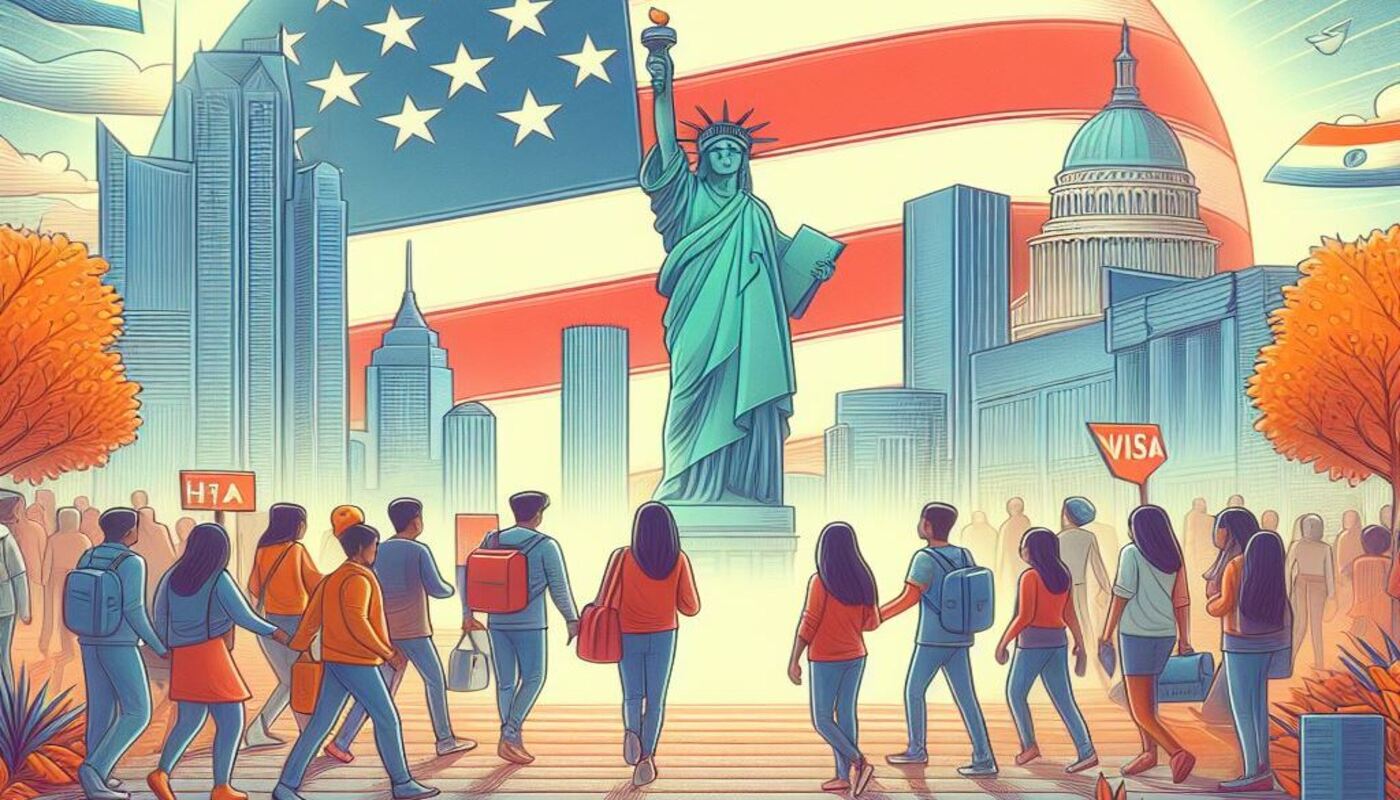In recent times, significant transformations have reshaped the landscape of H-1B visas, crucial for Indian IT professionals and companies, sparking debates and raising important questions about their impact. These alterations encompass policy amendments and procedural changes, prompting discussions within the industry, particularly concerning their effects on Indian talent and businesses in the United States.
Traditionally, the demand for Indian professionals in the US has been strong since the inception of the H-1B visa program in 1990. However, concerns over practices like body shopping and wage discrimination have necessitated stringent policy reforms to ensure fair employment opportunities for guest workers and restore trust in the hiring process. While these changes may pose short-term challenges, they hold the potential for strengthening long-term bilateral relations between India and the US.
The shift towards a beneficiary-centric registration process by the USCIS represents a significant departure aimed at curbing misuse of the H-1B visa system. This move aims to enhance fairness and reduce fraud by focusing on individual beneficiaries rather than employers, streamlining the selection process, and potentially improving approval rates for FY 2025.
Proposed fee hikes for H-1B visas are set to alter cost dynamics for companies employing foreign professionals. While these hikes may discourage the exploitation of cheap labor, they also present financial challenges for employers. However, it’s worth noting that these fees contribute to funding scholarships and job training initiatives for domestic US students and workers in STEM fields.
The narrowing definition of ‘specialty occupation’ raises concerns about its impact on individuals and companies, emphasizing the need for continuous skill upgrades in STEM fields to remain competitive.
Efforts to regulate the employer-employee relationship for H-1B employees assigned to third parties aim to mitigate risks associated with employee poaching and ensure national security, though challenges in enforcement persist.
The domestic renewal pilot offers hope for spouses of H-1B visa holders, addressing concerns about work authorization delays and immigration policies.
With the 2024 US election approaching, immigration policy remains a crucial issue with implications for both domestic and international stakeholders. Collaboration and adaptation to the evolving landscape can foster stronger ties between nations and facilitate smoother transitions for skilled professionals across borders.
In conclusion, the recent shifts in H-1B visa policies underscore the complexities of managing global talent flows. While challenges exist, opportunities for innovation and collaboration abound, provided stakeholders embrace changes with resilience and foresight, fostering dialogue and cooperation to drive economic growth and cross-cultural exchange.
Source: timesofindia
















